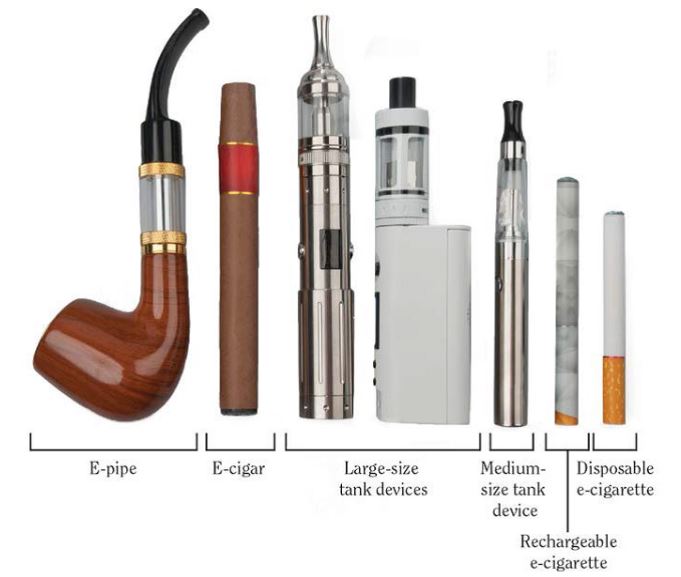
Despite a long tradition of taxing traditional tobacco products, Virginia should not now tax the alternative products from the same industry based on nicotine-laced heated liquids because they serve the high social purpose of harm reduction, legislators were told Tuesday.
Carrie L. Wade of the R Street Institute, who never quite stated who had paid her to be there, told a meeting of the General Assembly’s Joint Subcommittee to Evaluate Tax Preferences that “good state regulation” of these products would “treat combustible products differently than non-combustible products” and “send a public health message through differential tax rates.”
The United Kingdom, Japan and Sweden have all found that nicotine delivery without benefit of fire has moved people away from cigarettes, she said. In Sweden the product mentioned was smokeless tobacco inserted in the mouth, which is illegal in the European Union. Asked why it was banned by the EU, she didn’t quite answer.
The reason of course is mouth cancer.
Having made uncounted billions selling a deadly and addictive product that King James I and Mary Baker Eddy understood could kill and having addicted government at all levels to the related tax revenue, the industry is now arguing that its newest and possibly slightly-less-deadly products should be tax free or at least taxed far less.
This being Virginia, where tobacco leaves decorate the House chamber ceiling, the assembled legislators listened patiently. Lobbyist Reginald Jones on behalf of Altria was up immediately following Wade, mentioning his client’s 3,700 Virginia employees and billions in sales and its downtown Richmond research center now focused on “heated products” which are “less harmful products.” He too used the new key phrase: harm reduction.
Jones was deeply appreciative that the committee would consider this issue, but it was merely responding to a mandate slipped into the state budget, a small item sponsored by Senate Finance Committee Chairman Emmett Hanger. “I view this as the beginning of a process,” said Hanger. Some lobbyist certainly handed him that language and requested its insertion, perhaps the same one so grateful to be there.
Over the years I’ve devised several laws to explain the world of politics and government, and today I formulated a new one: the more obscure a budget language provision, the more delayed its appearance into the sunlight, the more interesting it will turn out to be. This legislative study committee was created to trim the instances of special tax treatment in Virginia law, but this discussion was all about preserving or enhancing one. That’s the kind of lobbying creativity that produces the big bucks. Scores of lobbyist meters were running in the room.
Virginia does not now tax these vapor products except for the standard sales tax. Traditional tobacco products suffer an additional excise tax at the state level (the second lowest in the country) and in most cities and towns. The local taxes can be higher than the state tax and the patchwork of more than 100 different tax authorities has always annoyed the industry. Customers can usually go a short distance to another locality for lower-tax product. That is in part what the budget language meant by “modernization.”
Combined the state and local levies produce about $200 million in revenue, but the amount has been dropping steadily as tobacco use declines, in part due to switchers to vaping and also because new state laws reduced cigarette smuggling from Virginia to high-tax states. Over the past few sessions a handful of bills – all quickly killed – have proposed extending taxes to vapor products.
The most recent, House Bill 2056 in 2017, proposed a five cent per milliliter (or about $1.50 per ounce) tax on the liquid and a ten percent tax on the various devices to use it, such as those pictured above. Seven other states and the District of Columbia are already taxing one or the other, but usually not both.
Delegate Mark Keam of Vienna was one of those most engaged in the conversation and, after assuring everyone he thought what informed adults did in this area was fine with him, asked if there had been previous discussions of whether or how to tax these increasingly-attractive products. Not really, he was told. As noted any previous bill had never even gotten a vote in committee.
 Wade also argued against any effort to regulate the use of attractive flavorings in the products. Adults are just as fond of them as younger users, and hence they are an element of harm reduction. “We want to keep these products away from kids, but we think we can do that with existing regulations,” she said.
Wade also argued against any effort to regulate the use of attractive flavorings in the products. Adults are just as fond of them as younger users, and hence they are an element of harm reduction. “We want to keep these products away from kids, but we think we can do that with existing regulations,” she said.
As Virginia contemplates special taxing treatment, the Food and Drug Administration is on the warpath over the explosion of these products among young people. Given how the industry marketed cigarettes as healthy and featured doctors in their advertising, perhaps these new health claims should be viewed with at least a little suspicion.

Leave a Reply
You must be logged in to post a comment.